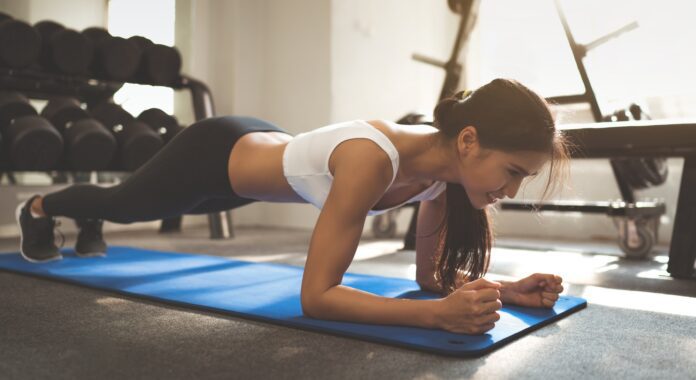Top tips for exercising on your period
As summer of sport takes hold, Dr Shree and INTIMINA tackle your unanswered questions about exercising on your period
Recent headlines surrounding menstruation and Wimbledon have brought the conversation around sport and exercise whilst on your period back to the forefront. Whilst there is evidence to suggest that getting active whilst on your period can be beneficial, the thought may be daunting for some. Luckily, intimate wellness brand, INTIMINA, are experts on the subject and on hand to share helpful advice.
So if watching the Women’s Euros has inspired you to get active, these tips from INTIMINA’s gynaecologist and healthcare advisor, Dr Shree Datta, will tell you everything you need to know about exercising on your period.
Should I exercise on my period?
Exercising whilst on your period is a matter of personal preference, and my main advice would be to listen to your body and what you feel up to. That said, there have been studies that suggest exercise may improve your mood and help with pain during periods, possibly due to the release of endorphins. So if you want to continue exercising or feel inspired to take up a new sport, don’t let your period stop you.
Can tracking your cycle be beneficial to sports performance?
The menstrual cycle has four key phases, which are marked by rising and falling levels of hormones such as oestrogen and progesterone. These hormones can affect our dietary needs, cravings, emotions as well as our response to different types of exercise. So, in short, yes, being in tune with your cycle and how you feel at each point of it can help you understand how your body will react.
It also can help to track your own sleeping, eating and exercise habits to take a personalised approach to your exercise programme and performance. Remember, your sleep is more likely to be affected in the days leading up to your period if you suffer from premenstrual symptoms and period pains – and fatigue can impact on your performance. Similarly, heavy periods may leave you feeling tired and “washed out” so it’s worth consulting your Gynaecologist if you find this is happening every month.
What should I wear if I’m exercising on my period?
There is no doubt that wearing comfortable clothes, underwear and shoes whilst exercising influences our concentration and mood, thereby affecting our performance. Knowing your period cycle and moods can help you plan which exercise is best for you on your period, along with what is most appropriate for you to wear. There’s no one size fits all (excuse the pun!) here, so it’s about figuring out what works best for you. Some women find looser clothing more comfortable in the first few days of their period, along with low intensity exercise.
Although period blood is a normal part of our monthly cycle, if you’re worried about period blood leaking through, you may want to consider loose clothing or dark colours as well as “doubling ” up on period products – for example, using a menstrual cup as well as period pants or sanitary towel. Why not try INTIMINA’s Ziggy Cup 2, made of petal thin silicone meaning it can’t be felt, making it perfect for sport and exercise.
Bear in mind that if you are regularly “flooding” or leaking blood through your clothes it’s worth speaking to your Gynaecologist as this may be a sign that you are losing a lot of blood during your period. This can be caused by several factors – for example, fibroids or polyps which can develop in the womb
What foods are best to eat to fuel me whilst on my period?
Studies suggest that diet and exercise performance may be most affected in the days leading up to and during your period. This is partly thought to be caused by the hormones we release in the second half of our menstrual cycle. Some research has shown that our total protein intake also increases in the second half of the cycle, along with an increase in appetite and cravings for sweet or salty flavour as a result of these hormonal changes.
Whilst every person’s dietary needs vary, a balanced diet with plenty of fibre, protein and iron throughout the menstrual cycle are key as well as staying well hydrated.
Bear in mind that long periods of dieting can have a knock-on effect on your hormone release and can therefore affect the length of your period as well as the frequency – but don’t forget that this isn’t the only factor that can affect your period, for example stress and a hectic lifestyle. Tracking the impact of your menstrual cycle can help you consider what foods suit you best in the first and second half of the cycle, when to undertake strenuous exercise and how your moods may be affected depending on where you are in your menstrual cycle.
Danela Žagar, Spokesperson for INTIMINA, commented: “We know that people may have concerns around playing sport of exercising on their period, so we’re happy to have Dr Shree Datta on hand to share advice on how to stay active in a way that works for you.”
For more information on staying active whilst on your period, visit https://www.intimina.com/sport

| [donate]
| Help keep news FREE for our readersSupporting your local community newspaper/online news outlet is crucial now more than ever. If you believe in independent journalism,then consider making a valuable contribution by making a one-time or monthly donation. We operate in rural areas where providing unbiased news can be challenging. |

















